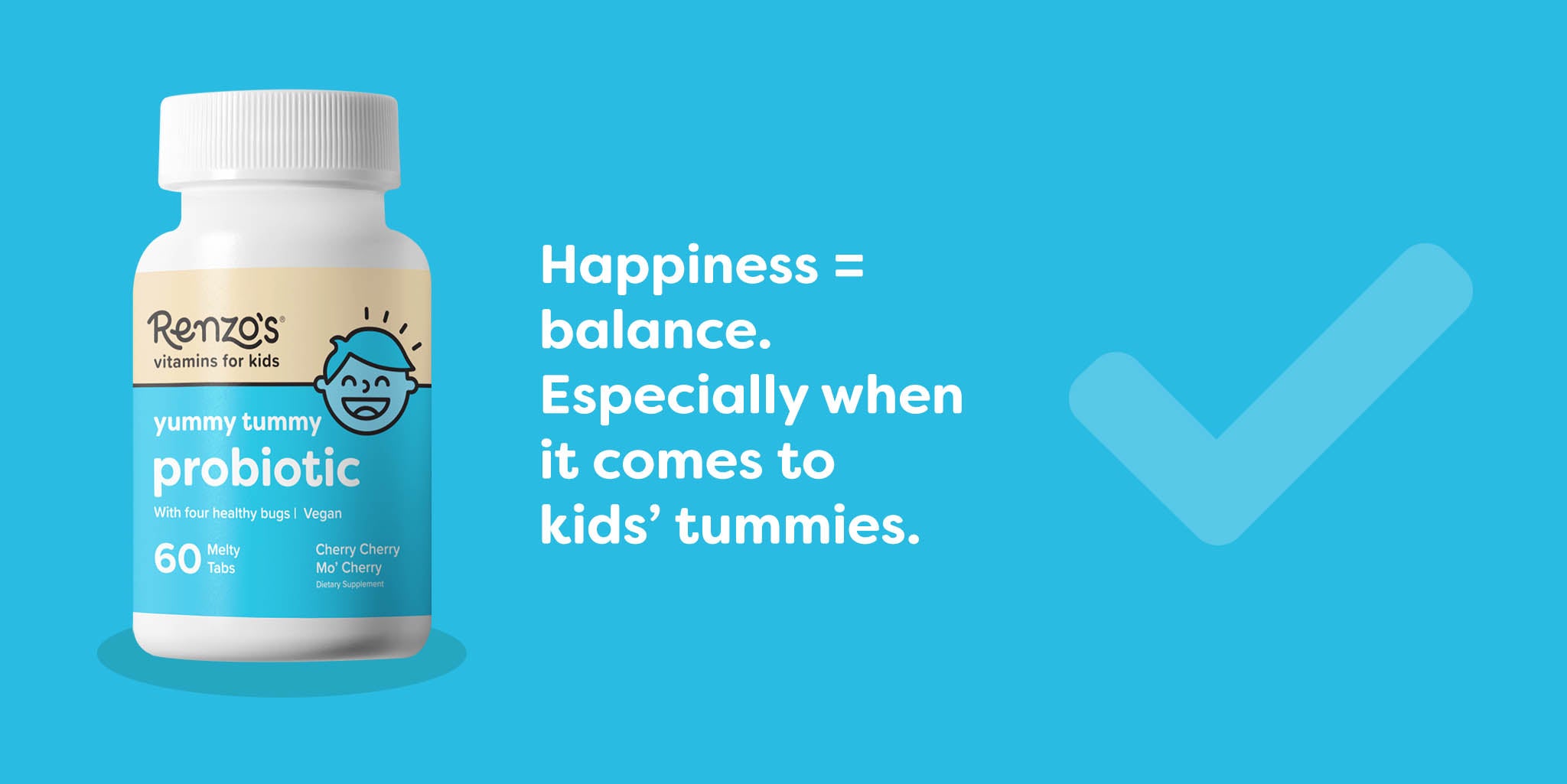Article By: Dr. Evangelynn Honegger
Dr. Evangelynn Honegger is the Lead Clinic Physician at TRUEcare Integrative Medicine, an integrative naturopathic family medicine, acupuncture, and functional nutrition practice in Kirkland, WA.
If the word ‘overwhelm’ comes to mind when you are perusing the supplement aisle with your little in tow, you are not alone. It can be daunting to pick out the right probiotic let alone one for your little. Spoiler alert: Not all probiotics are created equal, nor do they contain the proper strains or CFU amounts for efficacy to help support a healthy body, balanced digestion, and immune system!
Probiotics can be a wonderful foundational supplement to add as a catalyst to help support invincible immunity alongside those healthful routines of sleep, movement, outdoor time, and optimal nutrition. Probiotics add another layer of good microorganisms to already existing ones in our bodies. These microorganism powerhouses do more than just support gut health. A growing body of research demonstrates probiotics can key into immune health since over 70% of our immune system is in our gut — this means probiotics are vital in supporting all systems of our body and for maintaining a resilient immune system.
Additionally, probiotics can help get your child’s gut back on track after a course of antibiotics. Ear infection? Recurring colds and other illnesses? Upset tummy? Diarrhea? Constipation? Probiotics can often actually help reduce those symptoms and restore healthful balance instead.

Probiotics are the control centers for kiddos’ bodies — for healthy digestion and bowel movements as well as helping support balanced moods. Beginning at a young age, a child’s microbiome and gut health diversity can impact their health. Therefore, it is so important to choose a probiotic that meets the needs of your little.
Signs your child might need a probiotic:
1) After antibiotics.
It is important to build up the diversity and resilience of your kiddo’s immune system. A good rule of thumb during a course of antibiotics is to take a probiotic at least two hours before or after between antibiotic doses to help reduce side effects of an antibiotic course and help keep a net and net balanced microbiome once the course of the antibiotic is up and it’s done doing it’s antibiotic action!
2) Always allergies (eczema, asthma, seasonal allergies, skin issues).
Taking a probiotic can often help boost the immune system and decrease risks of allergic reactions and gut reactivity.
3) Achoo-again?
If your kiddo is down with a cold or the latest and greatest illness going round in daycare or school yet again; taking a probiotic regularly may help decrease frequency of illnesses as well as reduce severity and duration of colds and that hopefully means less stay-at-home sick days!
Kids have unique needs which is why it is super important to choose a probiotic that has a blend of specific strains that have been clinically studied to boost childhood immunity and digestive health. Renzo’s has chosen four of the best probiotic strains that are proven to be gentle and effective in children.
When tummies are happy, things like digestion, immunity, and nutrient absorption naturally fall into place. We love this!

Reasons to love and choose the Renzo’s Yummy Tummy Probiotic:
- Non-GMO with no artificial flavors or sweeteners
- No fillers, no junk
- No gummies
- No subpar ingredients
- Active probiotic strains
- Free from the “Big-8 Allergens" (fish, shellfish, tree nuts, peanuts, gluten, soy, dairy, and eggs)
The gut is protected by billions of bacteria that help us digest food, guard against infection, and create hormones that help balance our mood. We can all use a little extra support for our gastrointestinal system health from time to time — and kids are no exception. Adding a probiotic to their daily routine can help to maintain happy gut health so they can carry on and keep on with being a kid.
Resources:
- https://www.ncbi.nlm.nih.gov/pmc/articles/PMC4006993/
- https://www.health.harvard.edu/nutrition/understanding-the-health-benefits-of-taking-probiotics
Renzo's Vitamins provides general recommendations, not to be construed as medical advice.

